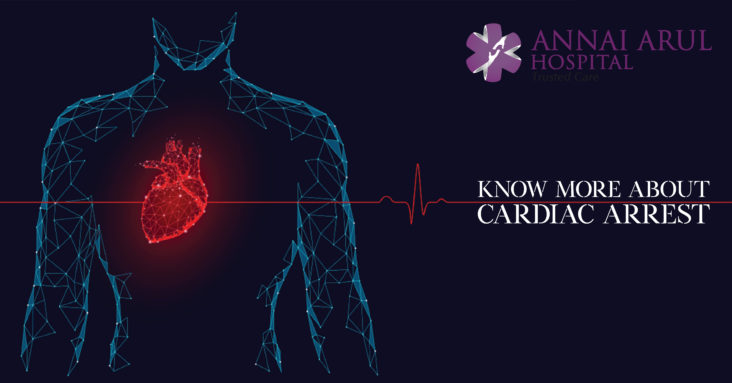We all are aware of cardiac arrest, which simply means the heart suddenly stops to beat. When this happens it cuts off blood supply to the brain and other vital organs. It is deadly and a serious emergency. You should take medical help immediately to save life.
Symptoms of Cardiac Arrest
Even before a cardiac arrest is due a person will feel very tired, dizzy, weak, short of breath and sick to the stomach. Cardiac arrest can also happen without any warning signs. When it happens the person may suddenly collapse, lose consciousness, have no pulse and stop breathing.
How it happens
The human heart has an electrical system that keeps it beating in rhythm and regularly. When the electrical signals get disturbed it causes irregular heartbeat or arrhythmia and then cardiac arrest. Most arrhythmia are not dangerous but some leads to cardiac arrest. With a cardiac arrest the blood supply to the various parts of the body stops and this causes a life-threatening situation.
What are the causes?
There are various factors that can lead to a heart attack:
A pre-existent coronary artery disease
A sudden loss of blood or sever lack of oxygen
High levels of potassium and magnesium in the blood
An inherited arrhythmia problem
An enlarged heart or change in shape of the heart
Cardiac Arrest & Heart Attack
In a heart attack the heart does not stop, but the blood flow to the heart gets blocked and so there is lack of oxygen to the heart. This can kill the heart muscles. But with cardiac arrest the heart itself stops due to disturbance in the electrical signals. Heart attack can also disturb the electrical signal and lead to a cardiac arrest and they are interlinked.
Is it heart failure?
No, cardiac arrest is not a heart failure. Cardiac arrest happens suddenly whereas a heart failure happens over a longer period of time. It is a condition where the heart gets weaker and can’t send blood or oxgen to the cells in the body. You will find it difficult to catch your breath after a normal activity like carrying groceries or climbing few stairs.
Who are at risk?
Those at risk for cardiac arrest can be:
If you are a male
Have coronary artery disease
Have family history of arrhythmia
Smoke, drink or do drug abuse
Have diabetes, BP or heart failure
Are overweight
Have already had a heart attack
The treatment
Immediatel treatment for emergency cardiac arrest is using a defibrillator that gives a sudden electric shock to the heart muscles. The shock can bring your heart back to action.
Once retrived the doctor may advise angioplasty or heart surgery to removes blocks in your artery. This is followed by medications and lifestyle changes to lower the risk of other heart problems and keep your heart working.


